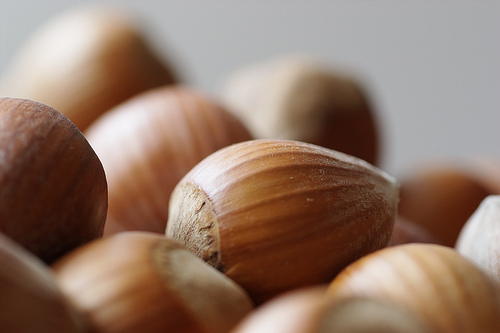Home >> My Pregnancy, Nutrition and Exercise >> Vitamin E and pregnancy
Vitamin E and pregnancy
 In the last twelve weeks of pregnancy your body starts to provide your baby with vitamin E. As a result, premature babies are at the greatest risk of suffering from a vitamin E deficiency.
In the last twelve weeks of pregnancy your body starts to provide your baby with vitamin E. As a result, premature babies are at the greatest risk of suffering from a vitamin E deficiency.
Vitamin E, which is also known as alpha-tocopherol, is a fat-soluble vitamin. Like vitamin C, vitamin E is an anti-oxidant. It protects your cells from damage by toxins, helps keep your cells healthy and contributes to the devlopment of your baby’s muscles and red blood cells. Your body stores vitamin A and vitamin EÂ in your liver.
Sources of vitamin E:
- vegetable oils
- nuts
- Various seeds
How much vitamin E do I need?
The current Recommended Dietary Allowance (RDA) of vitamin E for women is 15 mg/day. For pregnant women the RDA is no different, but for those who are breastfeeding the RDA rises to 19 mg/day.
Vitamin E deficiencies
Vitamin E deficiencies are very rare, but someone who suffers from a fat malabsorption condition, that is your body has trouble absorbing good fats, can experience a deficiency. Vitamin E deficiencies can cause red blood cells to break down in the body, which may lead to anaemia.
Newborns with vitamin E deficiencies have weak muscles and often quickly develop neurological symptoms, such as bleeding in the brain and abnormal blood vessels in their eyes, a condition known as Retinopathy of Prematurity (ROP). They are also more likely to develop asthma by the age of 5 than babies born with good vitamin E levels. However, once well monitored most babies overcome this deficiency and its associated symptoms.
More about vitamins during pregnancy.
Tags: anaemia, anti-oxidants, Food and Nutrition, premature babies, RDA, Retinopathy of Prematurity, trimester 3, vitamin deficiencies, Vitamin E, vitamins